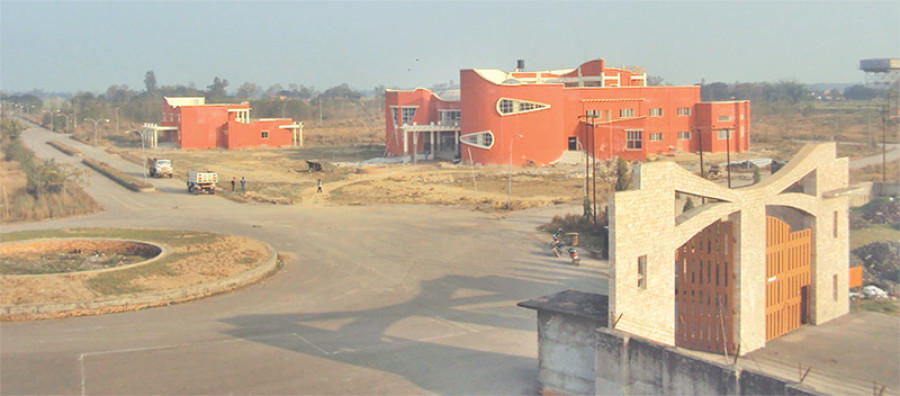Money
Nepal’s first garment processing zone invites investors to build plants
Nepal’s first garment processing zone in Simara has invited investors to submit applications to install production plants at the zone.
Krishana Prasain
Nepal’s first garment processing zone in Simara has invited investors to submit applications to install production plants at the zone.
The government constructed the garment processing zone on 300 bighas of land in Simara, Bara with an investment of Rs2.5 billion in order to facilitate exports of Nepali readymade clothes.
It is part of the government’s plan to build a special economic zone (SEZ) in each of the seven provinces, said Chandika Prasad Bhatta, executive director of the SEZ Development Committee.
He said the product specific industrial zone will make the production process cost effective. “It could help boost sales of Nepali products in the international market,” Bhatta added.
According to Bhatta, the committee has fixed the rental charge of the processing zone at Rs20 per square metre per month. Although the government mulled to reduce the rental charge in the newly constructed garment processing zone previously, it has fixed the rate similar to the rate in Bhairahawa SEZ.
The newly amended SEZ Act has reduced the mandatory export provision from 75 percent to 60 per cent to ensure sustainability of firms inside SEZs while 40 per cent of their production will be allowed to be sold in the domestic market.
The government amended the act after investors in SEZ expressed their lack of ability to export a majority of goods immediately after beginning production.
The new act is also expected to attract foreign companies to operate their production plants inside the SEZs.
Construction of the SEZ in Simara began in fiscal year 2007-08. However, construction work could not take off properly due to various problems, including shortage of funds and delays in land acquisition.
In the government’s policies and programmes announced on Friday, the government claimed that the garment processing zone has already started operations, six months ahead of the
deadline.
Nepal’s readymade garment industry collapsed after the Multi Fibre Agreement expired in January 2005, which provided duty-free access for Nepali garments to the US. According to the Garment Association Nepal, the country was exporting garments valued at Rs12 billion before the agreement expired and provided jobs to 500,000 people. More than 85 percent of the garment factories have shut down since then.
The country was shipping 87 percent of its readymade garment production to the US till 2002 said the association. Following the fall in exports to the US market, Europe has emerged as a major buyer of Nepali readymade garments, said Chandi Prasad Aryal, president of the association.
The statistics of the Trade and Export Promotion Centre show that the country’s exports earning from readymade garment stood as Rs4.1 billion in eight months of current fiscal year 2018-19, a marginal growth of 4.6 percent compared to the same period of 2017-18.
According to Garment Association Nepal, there are 52 readymade garment factories operating in the country with an annual production capacity of 6-7 million pieces. The total investment in the industry is Rs6 billion.
The government is planning to build at least one SEZ in each province. So far, only one SEZ has been built in Bhairahawa of Province 5. The government plans to operate a SEZ in Biratnagar of Province 1, Panchkhal of Province 3, Gorkha of Province 4, Jumla of Province 6 and Dhangadhi of Province 7. The SEZ in Simara represents Province 2.




 14.24°C Kathmandu
14.24°C Kathmandu















